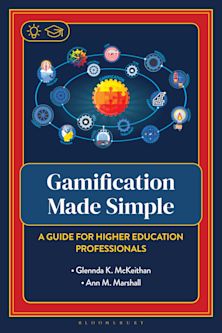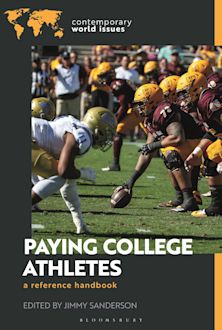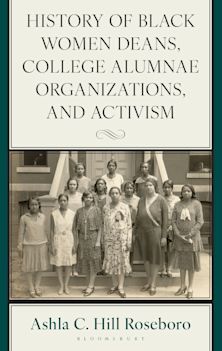- Home
- ACADEMIC
- Education
- Higher Education
- The Handbook of Peer Tutoring
The Handbook of Peer Tutoring
Daniel Sanford (Anthology Editor) , Michelle Steiner (Anthology Editor) , Russ Hodges (Anthology Editor) , David R. Arendale (Contributor) , Mitchell Colver (Contributor) , Heather Carroll (Contributor) , Dallin George Young (Contributor) , Keith J. Topping (Contributor) , Janet W. Colvin (Contributor) , Marinda Ashman (Contributor) , John Nordlof (Contributor) , Natalie K. Person (Contributor) , Cailyn E. Jordan (Contributor) , Heidi Rivers Marshall (Contributor) , Rod D. Roscoe (Contributor) , Tracy Arner (Contributor) , Jane Skalicky (Contributor) , Kem Roper (Contributor) , James D. Breslin (Contributor) , Anna Sharpe (Contributor) , Lygie Hinkle (Contributor) , Stacey Blackwell (Contributor) , Bryce D. Bunting (Contributor) , Jennifer Haley (Contributor) , Inez Anders (Contributor) , Kevin Sitz (Contributor) , Saundra McGuire (Contributor) , Lahna Roche (Contributor) , Melissa Brocato (Contributor) , Rachele Lawton (Contributor) , Christa De Kleine (Contributor) , Page Keller (Contributor) , Zohreh Fathi (Contributor) , Rene’ LeBlanc (Contributor) , Lori Wischnewsky (Contributor) , Jonathan Vontsteen (Contributor) , Russ Hodges (Contributor) , Geoff Bailey (Contributor)
The Handbook of Peer Tutoring
Daniel Sanford (Anthology Editor) , Michelle Steiner (Anthology Editor) , Russ Hodges (Anthology Editor) , David R. Arendale (Contributor) , Mitchell Colver (Contributor) , Heather Carroll (Contributor) , Dallin George Young (Contributor) , Keith J. Topping (Contributor) , Janet W. Colvin (Contributor) , Marinda Ashman (Contributor) , John Nordlof (Contributor) , Natalie K. Person (Contributor) , Cailyn E. Jordan (Contributor) , Heidi Rivers Marshall (Contributor) , Rod D. Roscoe (Contributor) , Tracy Arner (Contributor) , Jane Skalicky (Contributor) , Kem Roper (Contributor) , James D. Breslin (Contributor) , Anna Sharpe (Contributor) , Lygie Hinkle (Contributor) , Stacey Blackwell (Contributor) , Bryce D. Bunting (Contributor) , Jennifer Haley (Contributor) , Inez Anders (Contributor) , Kevin Sitz (Contributor) , Saundra McGuire (Contributor) , Lahna Roche (Contributor) , Melissa Brocato (Contributor) , Rachele Lawton (Contributor) , Christa De Kleine (Contributor) , Page Keller (Contributor) , Zohreh Fathi (Contributor) , Rene’ LeBlanc (Contributor) , Lori Wischnewsky (Contributor) , Jonathan Vontsteen (Contributor) , Russ Hodges (Contributor) , Geoff Bailey (Contributor)
You must sign in to add this item to your wishlist. Please sign in or create an account
Description
The Handbook of Peer Tutoring is the authoritative resource on the emerging interdisciplinary field of peer tutoring in higher education. Addressing the multiple audiences of undergraduate tutors in advanced trainings, students immersing themselves in the research of learning and writing centers, professionals seeking to understand the history and current state of the field, and researchers specializing in peer-led learning, the book gathers in one volume the voices that define the current state of the field. In doing so, it brings authors and ideas from previously discrete areas of study (learning centers, writing centers, the scholarship of teaching & learning, communication, composition, developmental education, psychology, and others) into conversation with one another, and advances the case for a single, shared scholarship of post-secondary peer tutoring that spans numerous disciplines, professional communities, and continents. Each contribution establishes the state of the research with a respect to a specific question or topic, and proposes directions for future research. Collectively, the volume both synthesizes and advances the state of the field, while also providing a roadmap for its future growth.
Table of Contents
Introduction: The Emerging Interdisciplinary Scholarship of Peer Tutoring in Higher Education. Daniel R. Sanford, Boise State University.
I. Peer Tutoring Essentials
1. The History of Peer Tutoring in Higher Education. David R. Arendale, University of Minnesota.
2. The Effectiveness of Peer Tutoring for Students in Higher Education. Mitchell Colver, American Public University System, & Heather Carroll, Medical College of Wisconsin.
3. The Effectiveness of Peer Tutoring for Peer Tutors in Higher Education: Research, Theory, and Practice. Dallin George Young, University of Georgia, & Bryce D. Bunting, Brigham Young University.
II. Topics in Theory
4. Collaborative Interaction, Active Engagement and Socio-Emotional Learning. Keith J. Topping, University of Dundee Scotland and RUDN University Moscow.
5. Social Dynamics in Peer Tutoring. Janet W. Colvin, Utah Valley University, & Marinda Ashman, Utah Valley University.
6. Linguistic Behaviors in Peer Tutoring. John Nordlof, Eastern University.
7. Question Asking in Peer Tutoring. Natalie K. Person, Rhodes College, Arthur C. Graesser, The University of Memphis, & Cailyn E. Jordan, Rhodes College.
8. An Imperative to Respond: Leveraging the Scholarship of Teaching & Learning to Enhance the Scholarship of Peer Tutoring. Heidi Rivers Marshall, The Chicago School.
9. Reflective Knowledge Building in Peer Tutoring. Rod D. Roscoe, Arizona State University, & Tracy Arner, Arizona State University.
10. Cognitive, Affective, and Behavioural Factors in Peer Tutoring: Fostering Student Engagement. Jane Skalicky, University of Tasmania, & Kathryn French, University of Tasmania.
11. Tutoring People, Not Subjects: Implications from Writing Center Theory for Peer Tutoring. Kem Roper, Athens State University.
12. Paradigms for Understanding the Work of Peer Tutors. James D. Breslin, independent scholar, & Anna G. Sharpe, Berry College.
13. Learning Centers as Cultural Spaces. Lygie Hinkle, Marymount University, & Stacey Blackwell, Rutgers University–New Brunswick.
14. An Exploration of the Key Features of High-Quality Models of Peer-Led Learning. Bryce D. Bunting, Brigham Young University, & Dallin George Young, University of Georgia.
III. Topics in Program Administration
15. Tutor Training. Jennifer Haley, Ball State University.
16. Racial & Cultural Diversity and Peer Tutoring. C. Inez Anders, University of California, Davis, & Kevin Sitz, University of California, Davis.
17. Metacognition and Peer Tutoring. Jonathan Vontsteen, Texas State University, Saundra McGuire, Louisiana State University, Lahna Roche, Louisiana State University, & Melissa Brocato, Louisiana State University.
18. Linguistic Diversity and Peer Tutoring: Fostering Linguistic Justice Through Peer Interactions in Postsecondary Institutions.Rachele Lawton, Community College of Baltimore County, & Christa De Kleine, Notre Dame of Maryland University.
19. Peer Tutoring in Online Environments. Page Keller, Knack Technologies, Inc., & Zohreh Fathi, Texas State University.
20. Neurodiversity and Peer Tutoring: A Social Justice Approach. Rene' LeBlanc, Texas State University, Lori Wischnewsky, Texas State University, Jonathan Vontsteen, Texas State University, & Russ Hodges, Texas State University.
21. Assessment of Peer Tutoring Programs. Geoff Bailey, University of Louisville.
Product details

| Published | 16 Oct 2025 |
|---|---|
| Format | Ebook (Epub & Mobi) |
| Edition | 1st |
| Extent | 472 |
| ISBN | 9781538190555 |
| Imprint | Bloomsbury Academic |
| Publisher | Bloomsbury Publishing |
About the contributors

ONLINE RESOURCES
Bloomsbury Collections
This book is available on Bloomsbury Collections where your library has access.


































